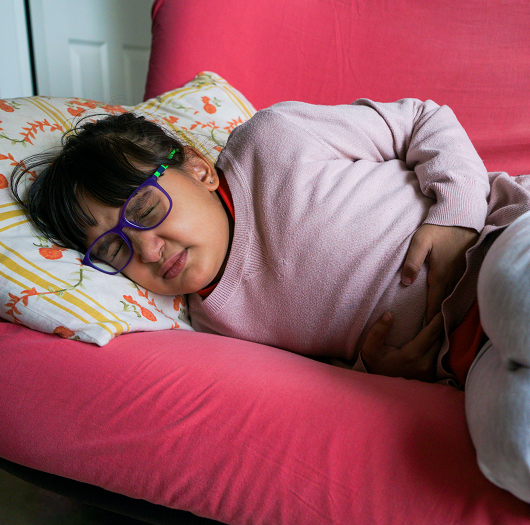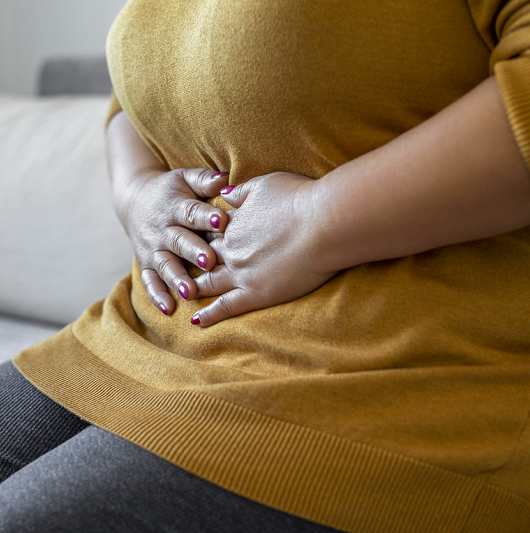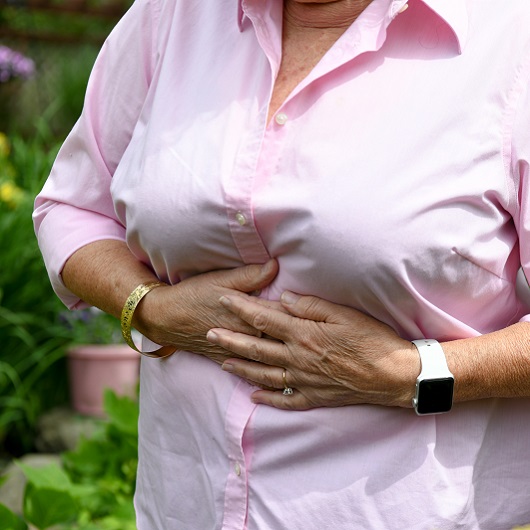Norovirus: How Long Does It Last On Surfaces?

March 15, 2024
Have you ever had a “stomach bug” with vomiting and diarrhea? It was probably norovirus, an extremely contagious virus that often spreads on surfaces. Norovirus can live on surfaces for days, even weeks!
Norovirus causes viral gastroenteritis, a digestive illness, which leads to vomiting and diarrhea. It’s the most common cause of gastroenteritis causing vomiting and diarrhea in the U.S.
Norovirus cases have risen in the Northeast this year, significantly outpacing last year’s figures.
“I’ve seen quite a bit of it in the hospital this year, more than last year,” says Rani Sebti, M.D., an infectious disease physician in Hackensack, New Jersey. “We can see it year-round, but it’s mostly in winter, between November and April.”
About 20 million norovirus cases occur annually, leading to 465,000 emergency room visits. It’s most dangerous among older adults and young children, leading to close to 900 deaths annually.
Norovirus spreads easily, particularly on surfaces, which puts people at risk of getting sick. The virus can work its way around a household, office or other shared space.
“You might hear from time to time a cruise ship had to take everybody back because everybody was vomiting or having diarrhea,” Dr. Sebti says. “That’s norovirus.”
What Are the Symptoms of Norovirus?
People with norovirus often feel well and then suddenly feel sick. A typical bout of norovirus lasts 12 to 60 hours.
Symptoms include:
- Vomiting
- Diarrhea
- Fever
- Chills
- Headache
- Stomach pain
“It resembles food poisoning, except with food poisoning, people don’t get fevers,” Dr. Sebti says. “Food poisoning usually goes away in 12 hours, but norovirus can last for more than two days.”
How Norovirus Spreads
Norovirus spreads through contaminated food or water, or by affected sick people or surfaces. If you come in contact with viral particles on surfaces, you may get sick.
The virus spreads easily because its particles survive for long periods on surfaces. The particles are hard to eliminate, and exposure to even a few particles can cause illness.
“If somebody has diarrhea from E. coli or salmonella and you shake their hand, you’re not going to get sick from that,” Dr. Sebti says. “But with the norovirus, you can, because even slight exposure can cause illness; it doesn’t take much.”
Microscopic norovirus particles may be deposited on surfaces through:
- Direct touch. If an infected person touches a surface, and then you touch that surface, then your nose or mouth, you may get sick.
- Someone with norovirus may deposit virus particles on surfaces in their personal space. It happens if they don’t wash their hands well after vomiting or having diarrhea.
- Airborne deposits. If someone with norovirus vomits, virus particles from the vomit may form droplets and become airborne. Those norovirus particles may also settle on surfaces that you may touch.
“With this virus, it doesn’t take much to trigger the disease,” Dr. Sebti says. “You touch the doorknob, you’re at risk.”
Norovirus also spreads easily if you and a sick person touch shared objects.
“If I play cards with you, you’re going to get it,” Dr. Sebti says. “Not because I’m sitting next to you, but because you’re touching the cards I’m playing with.”
How To Reduce the Spread On Surfaces
By some estimates, norovirus particles can survive on surfaces for weeks. They’re difficult to eliminate because certain cleaning methods aren’t effective.
“It’s resistant to alcohol we commonly use, so it’s very difficult to eradicate,” Dr. Sebti says. “You need to use a lot of bleach.”
For the right proportion, add 5-25 tablespoons of bleach to a gallon of water. Cleaning surfaces with this liquid should eliminate norovirus.
Wear disposable gloves and use paper towels when cleaning surfaces with the bleach mixture. Be methodical with your cleaning so that you don’t leave viral particles behind.
“If you leave a small area that is not clean, it’s going to survive,” Dr. Sebti says.
Frequent hand-washing also helps to eliminate the risk of spread. (If you clean your hands before touching your nose or mouth, you’ll be safer.)
Alcohol-based sanitizers aren’t effective against norovirus. To eliminate the viral particles, use soap and water.
“Soap and water won’t kill the virus, but it physically removes norovirus from your hands,” Dr. Sebti says. “Rubbing your hands together under running water helps this way.”
Why Seeking Medical Care May Be Necessary
If you have norovirus, seek medical attention if you cannot keep liquids down. You’re likely to become dehydrated if you’re vomiting and experiencing diarrhea.
“When someone only has diarrhea, they can drink water or Pedialyte, but not if they’re vomiting,” Dr. Sebti says. “That’s why there’s mortality associated with norovirus in patients over 65 – because of dehydration.”
Vomiting once or twice isn’t as urgent as vomiting five or six times. Use your best judgment to decide when you’re unable to rehydrate on your own.
Next Steps & Resources
- Meet our source: Rani Sebti, M.D.
- To make an appointment with Dr. Sebti, or a doctor near you, call 800-822-8905 or visit our website.
The material provided through HealthU is intended to be used as general information only and should not replace the advice of your physician. Always consult your physician for individual care.






